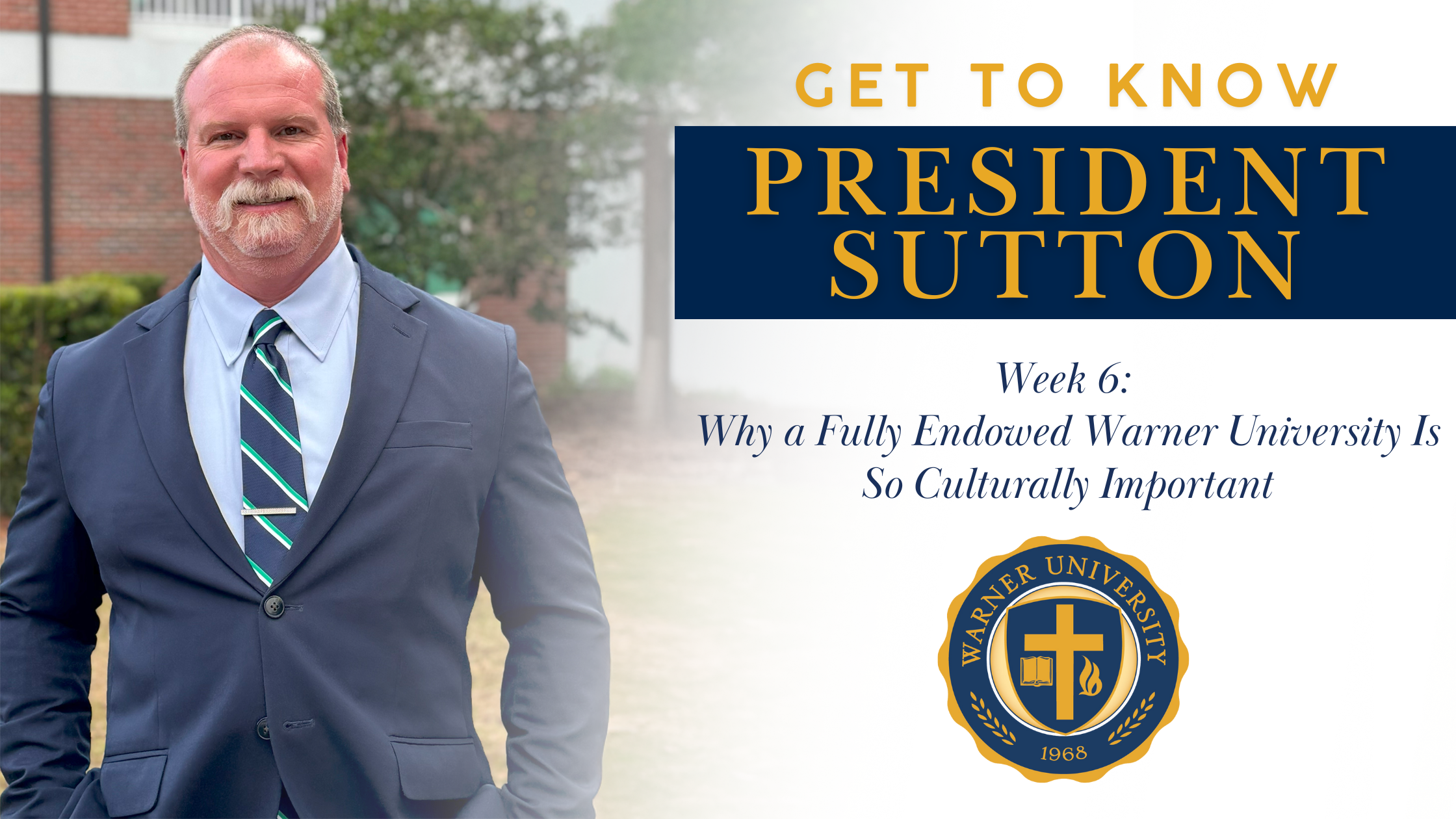Why a Fully Endowed Warner University Is So Culturally Important
Perhaps it is best to start this essay by explaining what is meant by the word endowment. It’s a word that those of us in higher education use frequently, but we seldom define it. An endowment is simply a large sum of money that organizations invest with the goal of using earnings from the investment to fund various projects, initiatives, and expenses. Ideally, the principal amount from an endowment is never touched; rather, institutions utilize only the earnings from their investments. Organizations also put investment earnings back into the principal amount, thereby continuously increasing the earnings potential of the principal itself.
Most people have probably heard that certain universities in the United States have endowments in the hundreds of millions or even the billions of dollars. These colossal endowments allow institutions to scholarship students in ways that colleges and universities with smaller endowments cannot, and they allow for significant growth and development.
If Warner University had an endowment of $300–$350 million, the earnings from that amount of principal would allow the institution to fully scholarship all of its students, pay its bills, and pay all of the salaries for the university’s employees—all without any type of association with federal financial aid. (Please see the accompanying video for an explanation of why independence from federal financial aid is an important goal for Warner University.)
These realities bring us to one of the most significant reasons that tuition at private universities typically costs more than tuition at public universities. As public institutions have been growing their endowments for the last century or two, their operational costs have been offset by state and federal funding. Consequently, and generally speaking, public universities have been able to grow their endowments faster than private universities. Because private universities lack government funding, more of their fundraising is, by necessity, directed toward operations instead of endowment growth. We are all familiar with private universities that have enormous endowments—particularly the Ivy League institutions—but, for the most part, the task of growing endowments has been much more challenging for private institutions. And this is the reason the sticker price for a private institution is often higher: lower endowments generate fewer earnings that can fund scholarships.
According to a quick Google search, about 1.9 to 2.2 million people graduate with a bachelor’s degree each year in the United States. My friends at the Council for Christian Colleges and Universities (CCCU) tell me that only about 48,000 of those people graduate from an institution that is a member of the CCCU. If we generously estimate that another 50,000 people graduate from Christian institutions that do not belong to the CCCU, then we can conclude that only about 4–5 percent of graduates are being produced by Christian universities.
And here is where the issue becomes significant…
As I point out frequently, the most socially and culturally influential careers generally require a college degree. Unfortunately, for decades, higher education has been widely dominated by radical progressivism, and the academy has become known as an institution that peddles anti-Christian, anti-Jewish, anti-sanctity-of-life, anti-free-speech, anti-free-market, anti-American, anti-Western, anti-merit, and anti-common-sense ideas. Now, remember, 95–96 percent of those approximately 2 million graduates each year are earning their degrees from the institutions that teach these ideas with strict devotion.
I hope the problem is clear.
And I would add here that, of the 4–5 percent of graduates coming from colleges and universities that claim to be Christian, many of those institutions have, unfortunately, abandoned biblical orthodoxy as their guide.
All of this underscores why Warner University is a place of extreme cultural importance. Instead of being taught to view the world through relativism or politically correct critical theories, Warner University graduates are encouraged to have a moral compass informed by biblical orthodoxy—and the education Warner provides is one of tremendous consequence. An endowment large enough to help us be more competitive in the scholarship domain will result in more biblically informed, Christ-loving leaders landing in those socially influential vocations that require a college degree. These realities are why I am so passionate about Warner University, and they are why I am so passionate about increasing scholarship endowments for our students. The Warner education matters for our culture. It matters for our communities. It matters for our families. It matters for the Church. And it matters for the Kingdom.
In the accompanying video, I explain some more reasons why a strong Warner University endowment is important. If you are as charged as I am about the need for truly biblical institutions to have larger scholarship endowments in order to make more of a difference in a struggling culture (and limit the debt burden for our students), please reach out. I would love to speak with you and tell you more.
